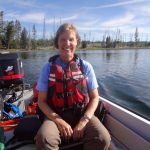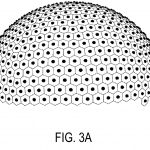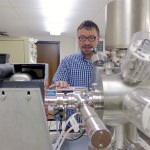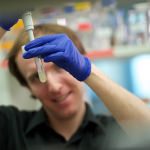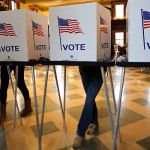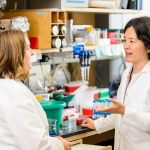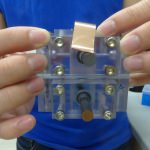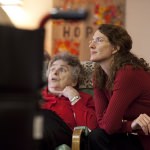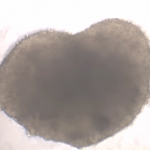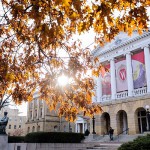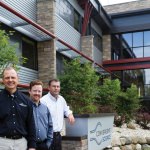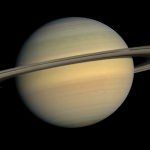Campus news Latest News
UW2020 funds projects to enhance research and infrastructure
The initiative seeks to fund research projects that have the potential to fundamentally transform a field of study, as well as projects that require significant development prior to the submission of applications for external funding.
New faculty focus: Rourke O’Brien
Rourke O’Brien, assistant professor of public affairs, La Follette School of Public Affairs • Hometown: Leonardtown, Maryland • Educational background: BA, Harvard…
UW-Madison announces revision to Amazon pickup point plans
The University of Wisconsin–Madison is no longer considering the Red Gym as a potential site for an Amazon pickup point, Vice Chancellor for…
Joan Sweeney ‘cared deeply about helping students’
Joan Sweeney worked in the Work-Study office for more than 40 years, touching generations of students with her advocacy, advice and good humor.
Monks’ art offers a break from hectic campus pace
To broaden cultural awareness on campus, the Wisconsin Union Directorate invited monks from Drepung Loseling Monastery to their annual World Music Festival to share their art.
Some brains are blind to moving objects
As many as half of people are blind to motion in some part of their field of vision, but the deficit doesn’t have anything to do with the eyes.
WARF patent drawing exhibit shows artistic side of science
For decades, the Wisconsin Alumni Research Foundation has helped UW–Madison inventors transform their ideas into reality, whether it’s a solar cooker, a self-tying shoelace device or even the DNA of the bubonic plague. Now WARF is displaying the visual beauty — and wide variety — of all those ideas.
Life in ancient oceans enabled by erosion from land
As scientists continue finding evidence for life in the ocean more than 3 billion years ago, those ancient fossils pose a paradox that raises questions about whether there was more land mass than previously thought.
Yeast knockouts peel back secrets of cell protein function
The study provided a level of detail not available even five years ago. Improved technology cut the time to analyze all the proteins in a yeast sample from four hours to one hour.
Debate experts from UW–Madison
The following University of Wisconsin–Madison experts are available to speak with reporters covering the upcoming presidential debates. The first of three debates is scheduled for 8 p.m. on Monday, Sept. 26, at Hofstra University in Long Island, N.Y.
UW-Madison student part of convention to select presidential debate questions
UW's Jacquelyn Moss was part of a group of college students who came up with a list of questions they hope are asked in the first presidential debate on Tuesday, between candidates Hillary Clinton and Donald Trump.
Bacteriology professor Jade Wang named HHMI Faculty Scholar
Jue “Jade” Wang, an associate professor of bacteriology at the University of Wisconsin–Madison, has been named a Howard Hughes Medical Institute (HHMI) Faculty Scholar.
A marriage made in sunlight: Invention merges solar with liquid battery
Solar charging and electrical discharging, according to a UW researcher, can be repeated for many cycles with little efficiency loss.
MacArthur ‘Genius Grant’ winner is UW–Madison alumna
Anne Basting, who received a master’s degree in theatre and drama at UW–Madison, is now a theatre professor at the University of Wisconsin-Milwaukee.
Artist mixes traditional and contemporary; decorative and political
Interdisciplinary artist-in-residence Meeta Mastani teaches students about natural dyes and printing, but she also encourages them to use their art to express their emotions and beliefs.
Students share impassioned messages at ‘Dear World’ event
Numerous UW–Madison students shared the messages that are important to them through a unique means at "Dear World" event on Sept. 20 at Gordon Dining and Event Center. They painted the messages on their bodies, and then portraits were taken of them displaying them.
UW-Madison rises in World University Rankings
The University of Wisconsin–Madison has risen from 50th last year to 45th this year in Times Higher Education World University Rankings. In the United States, UW–Madison ranked 23rd this year and 26th last year out of 148 institutions.
Engine software from UW spinoff being used around the world
A good portion of the world’s major engine manufacturers are using engine simulation software developed by Convergent Science of Madison, which has deep roots in the UW–Madison department of mechanical engineering.

